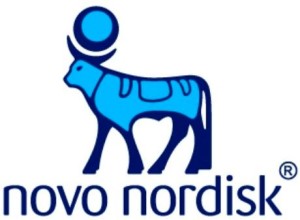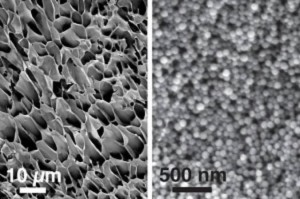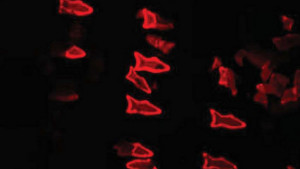- Novo Nordisk and MIT to collaborate on researching the next generation of drug delivery devices (worldpharmanews.com)
Novo Nordisk…announced that a research collaboration has been initiated with the Langer Laboratory at the Massachusetts Institute of Technology for what is hoped to be the next generation of drug delivery devices for the administration of peptides… as an alternative to parenteral or injection-based delivery of peptides… creating new approaches for delivering drugs such as peptides and proteins across complex barriers in the body such as the blood-brain barrier, the intestine, the lung and the skin.
- Can deconstructing the biological clock help treat diabetes and cancer? (medcitynews.com)Amgen Finds Data Falsified in Obesity-Diabetes Study Featuring Grizzly Bears (wsj.com)
...evolutionary underpinnings of diabetes are actually quite strong: Animals go through cycles in which their metabolism changes. Animals become obese and insulin-resistant when food availability is very low, and their metabolism kicks into gear when the environment is flush with food…all aligns with Circadian rhythms, Rhode Island-based biotech VeroScience asserts, which is why it’s developing its line of therapeutics around the waxing and waning of mammal metabolic function. In short, it’s studying how the biology behind the hibernation patterns of a bear,.. might be harnessed to spark new therapeutic modalities.
- Hydrogels: Study shows use in ulcerative colitis and Army invests in wound healing research (fiercedrugdelivery.com)
A hydrogel is a polymeric material capable of holding large amounts of water in its 3-D structural network. Because it acts as the gel equivalent of a sponge, hydrogels are ideal for delivering different kinds of drugs and performing necessary functions. This week, hydrogels have shown to be useful in treating inflammatory bowel problems...
- Patients Strongly Oppose Prescription-Only Pseudoephedrine (pharmacytimes.com)
..vast majority of patients wants continued access to OTC medications containing pseudoephedrine and opposes making the drugs prescription-only…This conclusion comes from an Asthma and Allergy Foundation of America survey of more than 2000 adults … who experienced cold, cough, flu, asthma, or allergies…71% of patients unfavorably view pharmacies and grocery stores that remove OTC medications containing PSE from their shelves..
- Pfizer’s quit-smoking drug not linked to depression or heart risks (reuters.com)
Pfizer's stop-smoking drug Chantix (varenicline) does not raise risks of heart attack or depression, contrary to previous reports, and should be recommended to more smokers wanting to quit, scientists said…researchers found that patients who took Chantix,..marketed as Champix in Europe, were no more likely to suffer a heart attack than those using nicotine replacement therapy or another quit-smoking drug…also not at higher risk of depression or self-harm...
- US researchers say 3-D printed microscopic fish robots will allow intelligent (in-pharmatechnologist.com)
Nanoengineers at the University of California, San Diego used 3-D printing to build fish-shaped microrobots. The so-called microfish can swim in liquids, are chemically powered by hydrogen peroxide and are magnetically controlled. The scientists said the synthetic microfish will inspire a new generation of ‘smart’ microrobots capable of detoxification, sensing their environment, and directing drug delivery.
- ‘Milking’ deadly jellyfish for new medicines (medicalnewstoday.com)
study of venom in medicine has traditionally been confined to understanding its effect as a toxin..But scientists are becoming increasingly interested in studying venom systems...to discover ingredients to make new drugs… a new technique for "milking" the Australian box jellyfish of its deadly venom,...method that he and his colleagues have developed is practical and highly efficient, and it promises to remove a major bottleneck in the field of jellyfish venom research.
- Researchers are trying again to help you take your medicine (washingtonpost.com)
physicians, pharmacists and researchers have been frustrated for decades at patients’ inability to…remain on their medication regimens…a round of experiments funded by the Affordable Care Act…offer hope of progress against one of medicine’s most intractable problems….
- One project applies behavioral economics to the problem. Researchers at the University of Pennsylvania gave 1,000 people "electronic pill bottles" when they left the hospital after heart attacks. If they forgot to take their medicine, the cap would light up and beep… If they took their medications,…they became eligible to win small lotteries that offer…prizes.
- In Hawaii, another project, the $14.3 million "Pharm2Pharm" experiment, seeks to connect doctors and pharmacists who dispense medication to patients leaving hospitals with community pharmacists…Community pharmacists often complain that they have no idea which medications their patients are taking, especially when they leave hospitals with new ones and can’t guard against dangerous interactions.
- In Wisconsin, more than 25 percent of the state’s pharmacists took a 12-hour training course, then sought out 100,000 people who appeared to be failing to refill their prescriptions…based on data provided by insurers under a $4.1 million project run by the state’s Pharmacy Society. Most were poor or elderly…Cost is a factor, convenience is a factor,..Lack of recognition of importance or need, health literacy and understanding" all contribute to non-adherence,…
- Frequency of and risk factors for medication errors by pharmacists during order verification in a tertiary care medical center (ajhp.org)
American Journal of Health-System Pharmacy - Abstract
Purpose The frequency of and risk factors for medication errors by pharmacists during order verification in a tertiary care medical center were reviewed.
Conclusion An increase in the number of orders verified per shift was associated with an increased rate of pharmacist errors during order verification in a tertiary care medical center.
- For a Rare Disease, Drug Trials Scramble for Patients (wsj.com)
Companies vie for enrollees amid questions that trials will siphon participants away from each other…After years of effort, scientists and families of young patients with the genetic condition Niemann-Pick Type C are in a position to which any rare-disease community aspires: the prospect of not one, not two, but three companies launching clinical trials to develop therapies…the flurry of commercial interest has sparked an urgent debate. Can the community support more than one trial at the same time?








